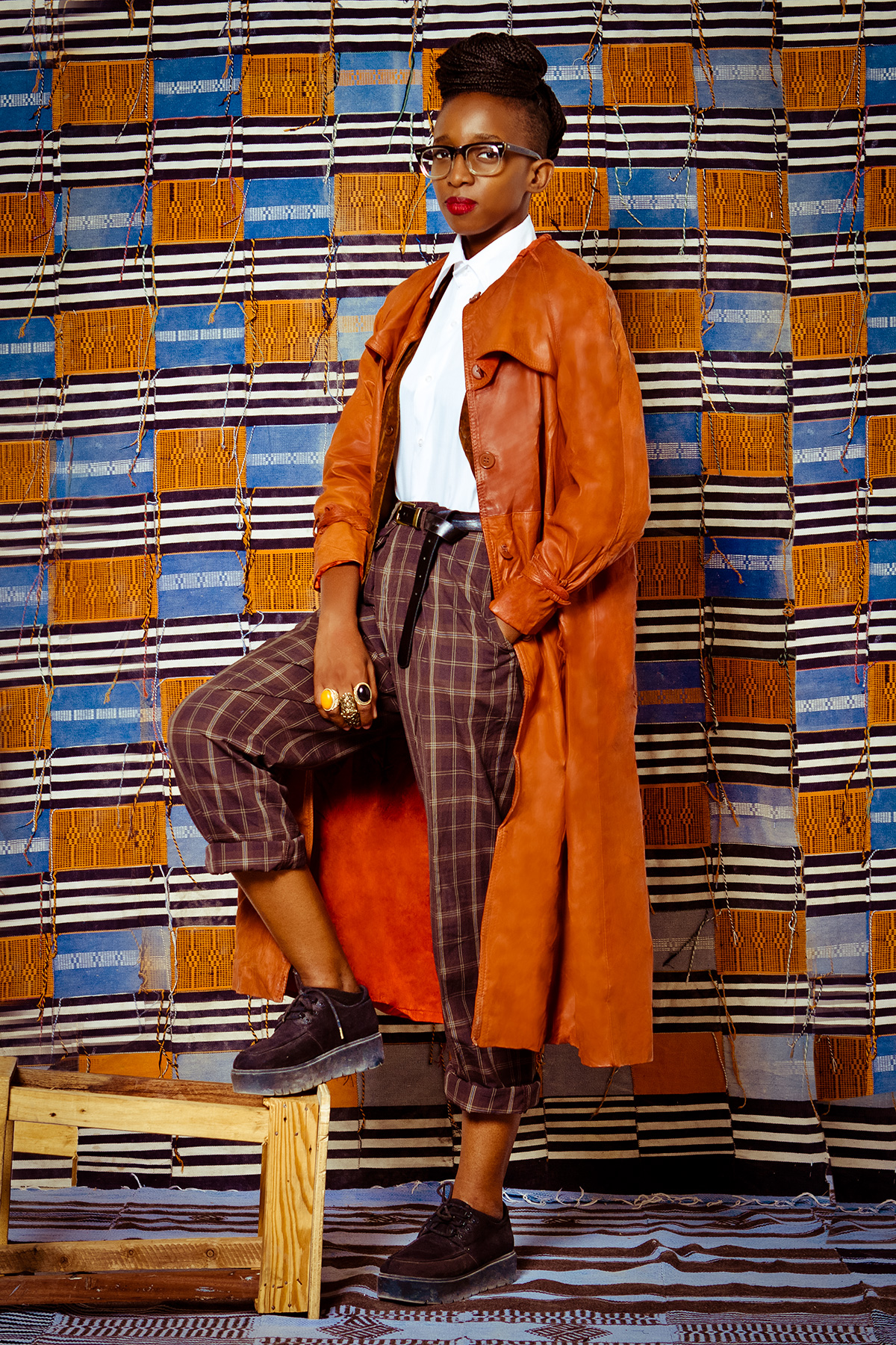For Selly Raby Kane, Dakar has always been more than home. “It’s central in the things I create,” the 32-year-old artist and fashion designer says of the Senegalese capital. “It’s a huge source of inspiration and creativity, and I have just been fascinated by its history.”
That history has informed much of Kane’s creative output. Her first official clothing collection in 2012 in Dakar gained attention for its juxtaposition of the traditional with the futuristic, incorporating designs from military attire and urban street fashion, as well as fantasy costume and sci-fi influences. “I was getting ready to conquer something. I don’t know what, but that mood and those silhouettes were definitely here.”
It was just three years earlier that Kane had enrolled in fashion school in Paris, after a brief experiment with a potential career in law. “I was searching for my voice, and it gradually grew into the techniques I’m using today,” she says of the 2012 collection and how it led to her practices today of woven embroidery, appliqué and collage. After Beyoncé was photographed wearing a kaftan designed by Kane in 2016, the designer’s profile soared on social media and magazines, as did demand—in late 2017, Kane opened her showroom in Dakar and her garments now sell in Europe, the U.S. and Nigeria.

As Kane’s profile has risen, she has experimented with other art forms. Her 2017 Virtual Reality short film The Other Dakar was a tribute to Senegalese mythology and the city’s hidden stories, gaining attention on the international film festival circuit. “It was an occasion for me to make our culture visible to the world, and VR was the perfect way to do so,” Kane says. And earlier this year when IKEA commissioned five African designers to create a range of homeware products, Kane created a basket designed to look like braided hair. She wanted to evoke the braiding rituals that had played such an important role in her own life and culture. “It was a beautiful ritual to explore, and the bond it creates between two people was very inspiring to me.”
Kane’s latest clothing collection builds on these interpretations of Senegalese heritage. Her ideas were fueled by a landmark 2018 report commissioned by President Emmanuel Macron recommending the repatriation of artefacts from French institutions back to their original sites in sub-Saharan Africa—a report she describes as “an earthquake.” “It made me realize that in each artefact and archive is encoded a type of knowledge, and a small fragment of history that informs you of a past vision of the world.”
As one of the more successful artists to emerge from a growing creative generation in Dakar and other African cities like Lagos, Nairobi and Kigali, Kane credits some of her success to belonging to several art collectives. “Fashion is not the most caring industry, so being in my city and having that space around me was super nourishing,” Kane says.
Now, Kane is making that space for others. “Being in a collective means a lot to me because I saw the positive effects it had in my trajectory.” Today, Kane’s showroom in Dakar regularly hosts students for internships, and also reserves a space for young designers from Dakar to showcase and sell their pieces.
This feeling of community stretches beyond Dakar; Kane sees it as a goal to contribute to reconstructing African identities. “It feels good to be part of a kind of trans-African community of young creatives.” And as for her own future? “To create imaginary worlds, and infuse them with knowledge of worlds that have existed and still exist. I think that’s a good recipe.”
- The 100 Most Influential People of 2024
- Coco Gauff Is Playing for Herself Now
- Scenes From Pro-Palestinian Encampments Across U.S. Universities
- 6 Compliments That Land Every Time
- If You're Dating Right Now, You're Brave: Column
- The AI That Could Heal a Divided Internet
- Fallout Is a Brilliant Model for the Future of Video Game Adaptations
- Want Weekly Recs on What to Watch, Read, and More? Sign Up for Worth Your Time